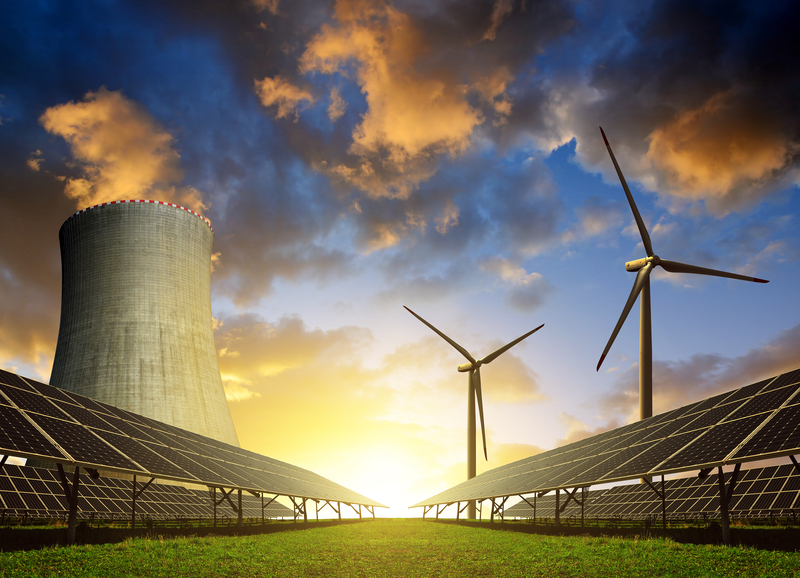
THE Philippines is not prepared for the risks posed by nuclear energy and should instead pursue the development of renewable energy. This was emphasized by Greenpeace Campaigner Khevin Yu during an online news briefing dubbed “The Economic Implications of a Philippine Nuclear Program: What the Pro-Nuclear Camp Won’t Tell Us” held last Friday.
Greenpeace held the briefing to issue its reaction to the House Committee on Appropriations’ approval of a House bill that seeks to establish a nuclear regulatory framework.
Citing a Philippine Institute for Development Studies (PIDS) report on the feasibility of nuclear energy in the Philippines, Yu said it would take at least a hundred years for the Philippines to be ready for the construction, operation and management of nuclear waste.
He said that similarly, the Philippines is not equipped with the technology nor the capacity to ensure the safe operation of nuclear energy, arguing that it will be too risky to operate such a facility in a country that is exposed to various natural disasters such as earthquakes, typhoons, landslides and flooding.
According to Yu, at least 14 sites are being eyed for the development of a nuclear facility in various locations, including Bataan, near the Bataan Nuclear Power Plant, which was abandoned by the government in the 1970s.
A lot better
GOING for renewable energy like solar energy is a lot better, Yu said because once it fails, solar energy can be quickly switched off without the risk of a nuclear disaster. He added that nuclear energy requires a lifetime to construct, operate and manage and is worse than fossil fuel, which can be shut down in 25 years. He said that disposing of wastes in nuclear will be problematic, citing the case of even advanced countries like Japan.
According to Greenpeace, the proposed Philippine National Nuclear Energy Act is a gruesome bill that, if enacted, will potentially bankrupt the country.
The group believes that the most that benefit from the proposed measure are the nuclear industry and nuclear companies.
“Posing a severe drain to the country’s financial resources, the bill will make the national government, local government units, using Filipino taxpayer money, shoulder most, if not all the liabilities—costs of short-and long-term waste storage, decommissioning and nuclear accidents— associated with nuclear energy,” it says.
During the briefing, Yu said nuclear energy is a costly source of power.
“It does not fit in a world beset by a global financial crisis, as countries like ours struggle from keeping the economy afloat while dealing with climate change impacts,” he said.
Yu said the nuclear bill in Congress will waste billions of taxpayer money even while it fails to propose any viable financial solutions to address the necessary gargantuan costs for short- and long-term radioactive waste storage, decommissioning and nuclear accidents.
“Companies and the pro-nuclear lobby are not being forthright on the pitfalls of small modular reactors (SMR),” he added.
Costs much higher
YU said there is no commercial SMR currently in operation in the world. If constructed, the Philippines will be one of the guinea pigs in a costly experiment, he said.
Moreover, he said the projected costs are much higher than our country can afford, putting the burden on our government and the people.
“Companies proposing SMRs, in reality, do not have sufficient capital to fund billions needed for nuclear accidents, early decommissioning and waste storage. Meanwhile, the Philippine government’s track record of making those responsible for environmental accidents like mine and oil spills is dismal,” he said.
In conclusion, Greenpeace said the Philippines government should drop Rep. Mark O. Cojuangco’s nuclear bill, arguing that it has “faulty provisions” and “neglects to tackle the true costs of nuclear energy”—both on the financial aspects of construction and operation, as well as, short and long term waste storage, decommissioning and nuclear accidents, all of which concern the safety of Filipino people.
Yu said the government should, in fact, drop plans to develop nuclear energy in the Philippines, altogether saying “it uses technologies and resources that are not readily available in the country and indigenous renewable sources are locally available and abundant, much faster to deploy, much less costly and does not carry inherent risks.
Instead, he said the Philippine government should prioritize a just transition to renewable energy.
Image credits: Vaclav Volrab | Dreamstime.com
